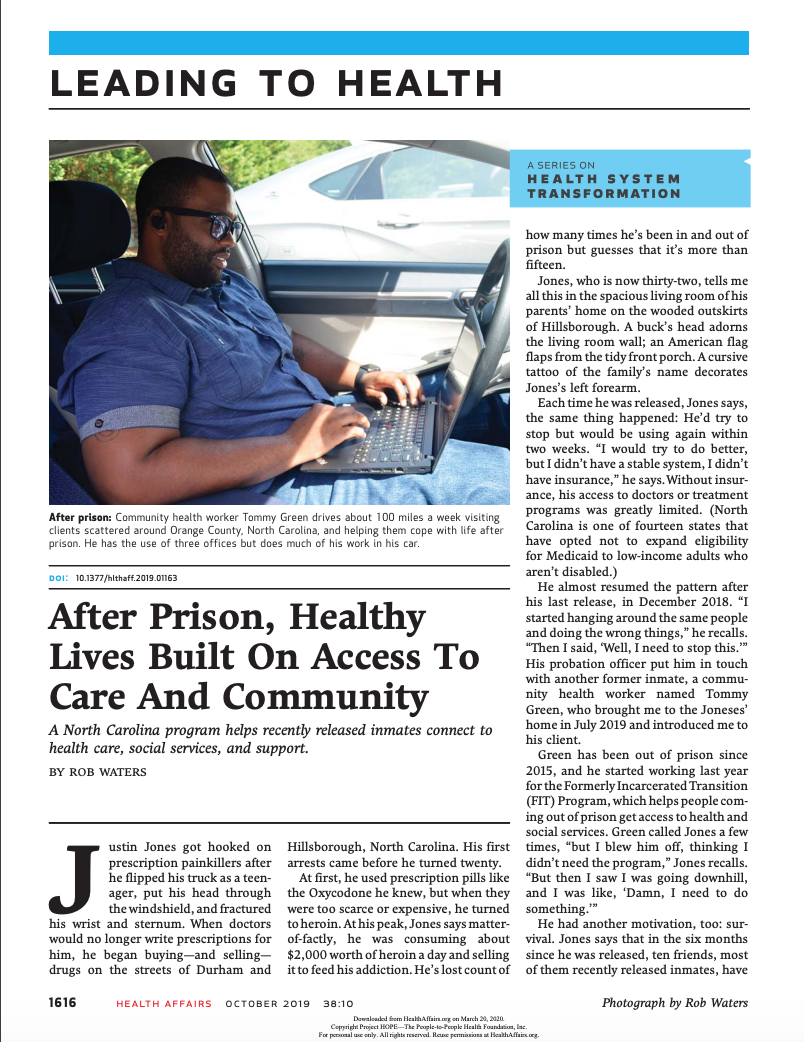
This article details how the Formerly Incarcerated Transition (FIT) Program in North Carolina helps recently released inmates connect to health care, social services, and support.
When they get out, most recently released inmates have other priorities than health care, like getting housing and reporting to their probation officers. Since health care isn’t high on the list, and they can’t afford it anyway, many simply don’t get care—even when they have serious health, mental health, or substance use problems.
Leaders saw the need to build better linkages between prisons and the community. In 2006, they started a pilot program in a community health center run by the San Francisco Department of Public Health, called the Transitions Clinic, and its aim was to connect former inmates with chronic health conditions to health, social, and support services within two weeks of their release.
Since its start thirteen years ago in San Francisco, the Transitions Clinic has grown: Now the Transitions Clinic Network, it contains thirty-four affiliated clinics in twelve states and Puerto Rico that follow the same model, including the FIT Program in North Carolina.
An early evaluation found that recently released inmates who got care from the Transitions Clinic in San Francisco made fewer emergency department visits than those who were offered care in a standard primary care clinic, resulting in an estimated savings of $912 per patient.
This article is part of a series on transforming health systems published with support from the Robert Wood Johnson Foundation.

 Back to Resources
Back to Resources